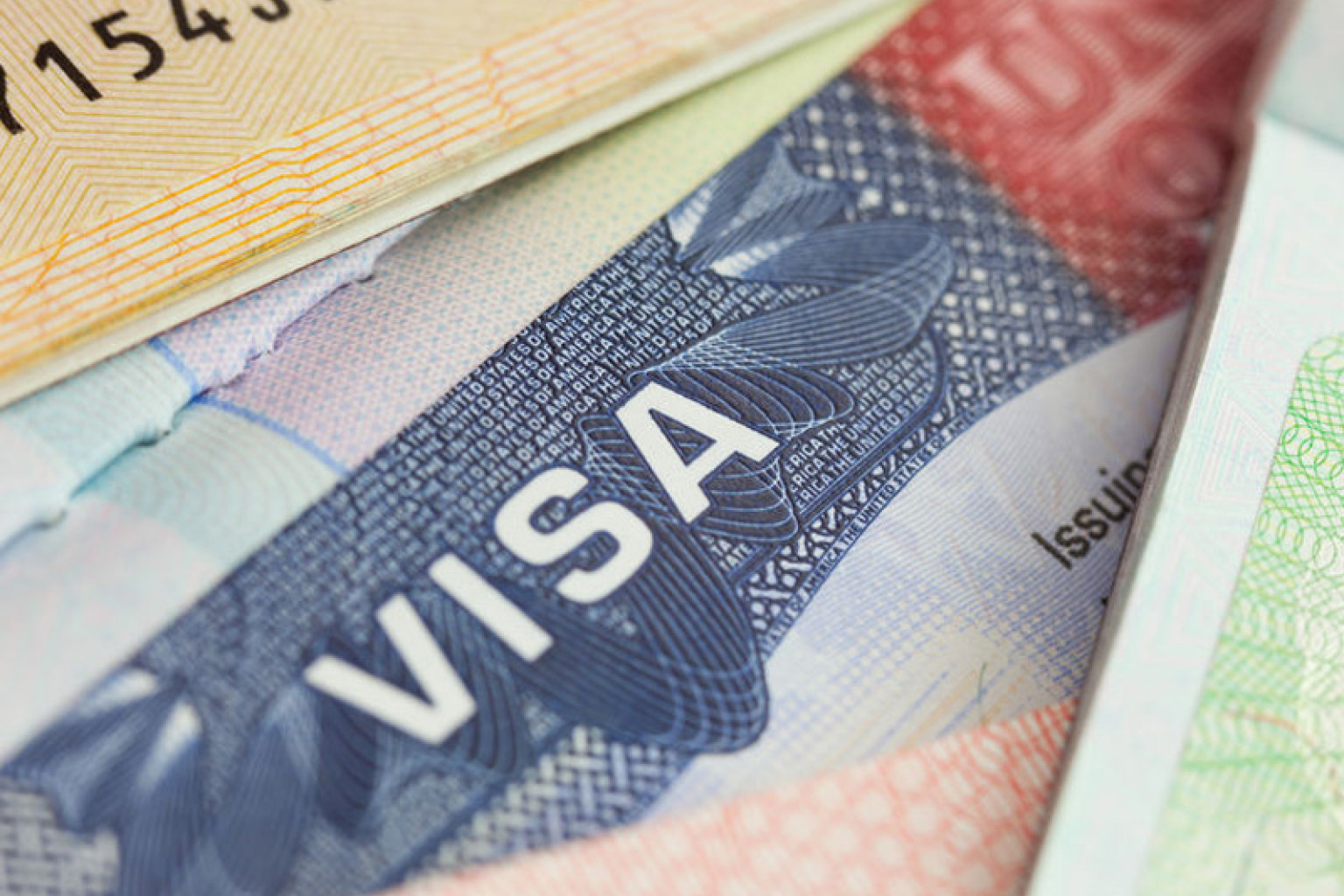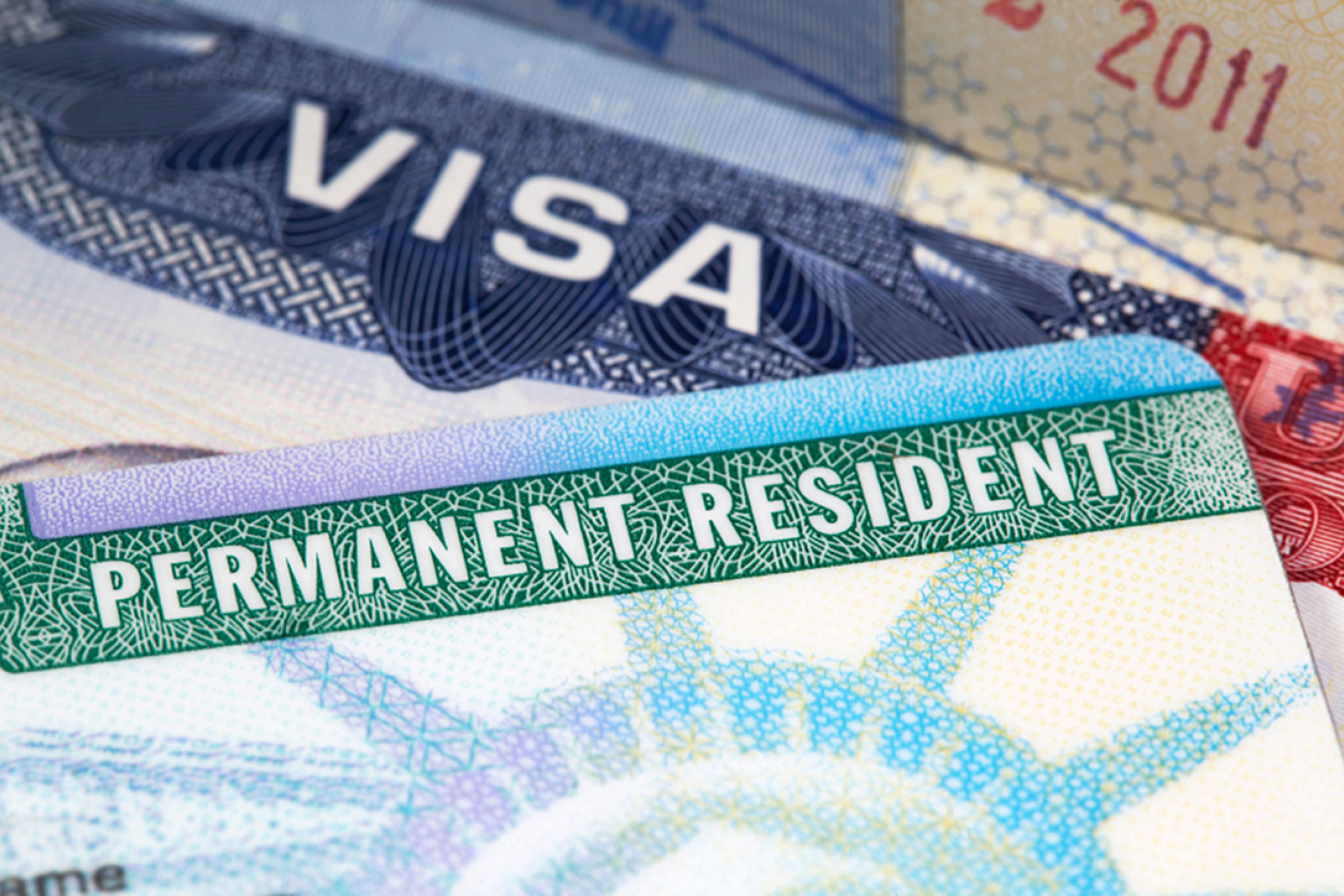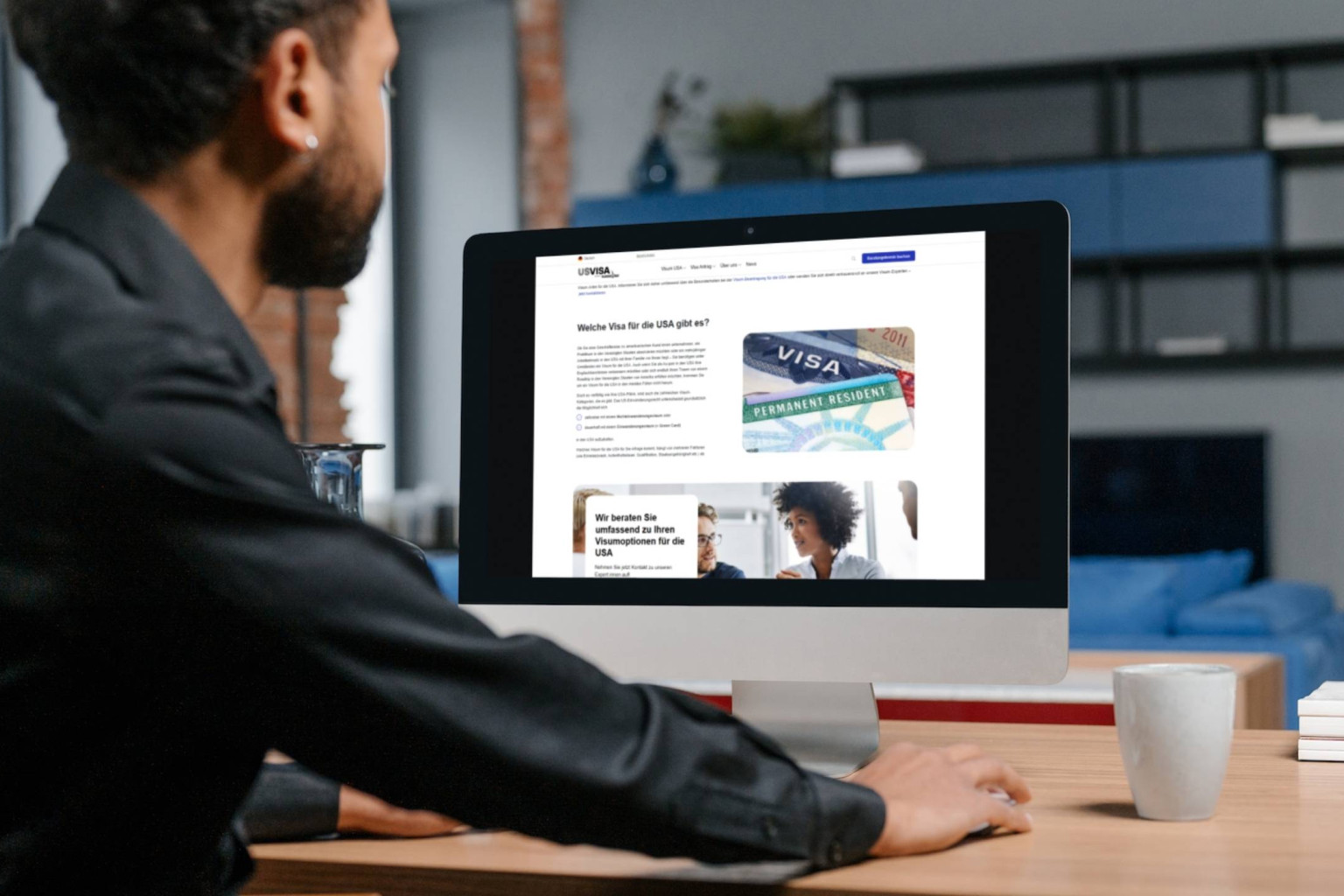US visas are complex with various types. The most common categories are listed below. We're here to help.

A visa for the United States is usually affixed to the passport and allows passport or visa holders to enter or transit through the United States to another country or to stay in the United States.
In practice, this means that holders of US Nonimmigrant Visas - i.e. work visas, business visas, student visas, tourist visas, etc. – apply to enter the United States only at the border crossing during border control in order to be allowed to stay there. – apply to enter the United States only at the border crossing during border control in order to be allowed to stay there. The decision as to whether travelers are allowed to enter the U.S. on their visas is thus made entirely by the immigration officers of the U.S. Customs and Border Protection (CBP). They are the ones who check visas and entry documents and subsequently allow or deny you entry into the United States. The approval of the entry and the permitted duration of stay is indicated by the entry stamp in the passport as well as the I-94 documented. Consequently, the authorities distinguish between the USA visa as a
The length of time a person may stay in the US with a visa varies by category.
Depending on the category, only the US consulates or the consular sections of the US embassies worldwide are responsible for issuing a visa for the United States. Depending on the visa category, however, other US authorities may be involved in the application process beforehand. Elsewhere, we will explain in more detail which responsibilities and areas of responsibility the various U.S. authorities have.
Normally, a visa is required for entry into the United States of America. However, the exception to this is th eVisa Waiver Program - VWP for short. Nationals of certain countries (e.g. Germany, Austria, Switzerland) areare exempt from visa requirements under certain conditions and can enter the US for up to 90 days without a visa for certain purposes of stay. Read more about the Visa Waiver Program with ESTA.
Those who cannot travel with ESTA and do not yet have a valid visa for the USA in their passport must apply for a visa in advance of their trip to the USA.
In contrast to most other countries, the visa application for the USA is a very complex and time-consuming procedure. In addition, there are very different types of visas for the USA. Therefore, you should inform yourself comprehensively about the special features of the visa application for the USA or contact our visa experts directly with confidence - contact now.
Whether you are taking a business trip to visit American customers,would like to complete an internship in the United States ora work assignment of several years in the USA with your family is ahead of you - you may need a visa for the USA. Even if you are an au pair in the USA want to improve your English skills or finally fulfill your dream of a road trip in the United States of America, you can't get around a visa for the USA in most cases.
But as diverse as your USA plans are, so are the numerous visa categories that exist. U.S. immigration law basically distinguishes between the possibility of getting
to stay in the USA.
Which visa for the USA is suitable for you depends on several factors (such as purpose of entry, duration of stay, qualification, citizenship, etc.).

The nonimmigrant visa category includes all visa types that allow limited stay in the United States. As the name suggests, this does not allow you to immigrate to the USA, but "only" to travel to the United States of America temporarily and stay in the USA. Depending on the purpose of your stay, you may be eligible for a different visa.
For crew members of airlines or shipping companies who have to enter the United States for work-related reasons
For companies that maintain significant trade (goods / services) with the USA
For highly qualified employees and persons with an academic degree or comparable qualification
For work stays by journalists/representatives of foreign media companies traveling to the USA on business
For company-internal postings to the USA of executives / managers / specialists of all nationalities
For people with exceptional abilities in the fields of science, art, education, business, sport or media
For outstanding people from the fields of art, sport and entertainment to participate in events in the USA
There is no such thing as "the" work visa for the USA. Those who want to work in the USA are spoiled for choice. The types of work visas for the USA include individual access requirements, application procedures, costs and processing times. In addition, most work visa categories are complex and time-consuming procedures. It is worthwhile to thoroughly examine which work visa is suitable for the USA. In some cases, simplified application procedures exist for companies with significant cost and time savings.
The basic requirement is a concrete job offer from a US employer. The official applicant (= petitioner) is therefore always the US company for the foreign applicant / employee (= beneficiary). Please note that a work visa is company-specific. This means that the future employee can only work for the US company that submitted the visa application.
Business travel is for the purpose of furthering trade or professional interests abroad, but excludes employment or payment in the United States. Typical reasons for entry on a B-1 visa include meetings, conferences, trade show visits, and after-sales service.
Persons who wish to make a short trip to the USA for tourist or private purposes can apply for a B-2 visa. This applies primarily to the classic tourist vacation, visits to relatives or medical stays.
Visitor visas are either eligible if you are not visa free with ESTA can travel to the USA, or if you are planning a longer stay in the USA (up to 180 days) for limited business or tourist purposes.
For interns, trainees, working students, dual students and high school students
An immigrant visa(Immigrant Visa)entitles the holder to permanent residence in the USA. Whoever obtains such a permanent residence permit - which is better known as aGreen Cardis known - can live and work permanently in the United States.
If you are unsure which visa to the USA you or your employees may qualify for,you are welcome to arrange a visa consultation with us.
Individuals of high national interest to the US, with special qualifications, or investors.
We advise you on the choice of the appropriate visa category and take over the complete processing for you or your company.

Wir und unsere Partner nutzen Cookies, um personenbezogene Daten wie z.B. Browsing-Daten zu speichern und abzurufen, um z.B. Inhalte und Werbung bereitzustellen und zu personalisieren sowie die Verwendung der Website zu analysieren und das Benutzererlebnis zu verbessern. Sie erfahren mehr über die Zwecke, für welche wir und unsere Partner Cookies einsetzen, wenn Sie unten auf den Button „Cookie Einstellungen“ klicken. Hier können sämtliche Einstellungen auch geändert werden. Nachträglich kann man jederzeit seine Cookie-Auswahl überdenken oder seine Einwilligung widerrufen, indem man auf den Link zu den Cookie-Einstellungen im Footer unserer Webseite klickt. Beachten Sie bitte, dass das Blockieren einiger Cookie-Typen unsere Möglichkeiten zur Bereitstellung von auf Ihre Interessen zugeschnittenen Inhalten haben kann oder einige Funktionen der Webseite nur eingeschränkt zur Verfügung stehen.
Durch klicken auf “Alle Cookies akzeptieren” stimmen Sie unserer Nutzung und der Weitergabe Ihrer Daten an unsere Partner zu.